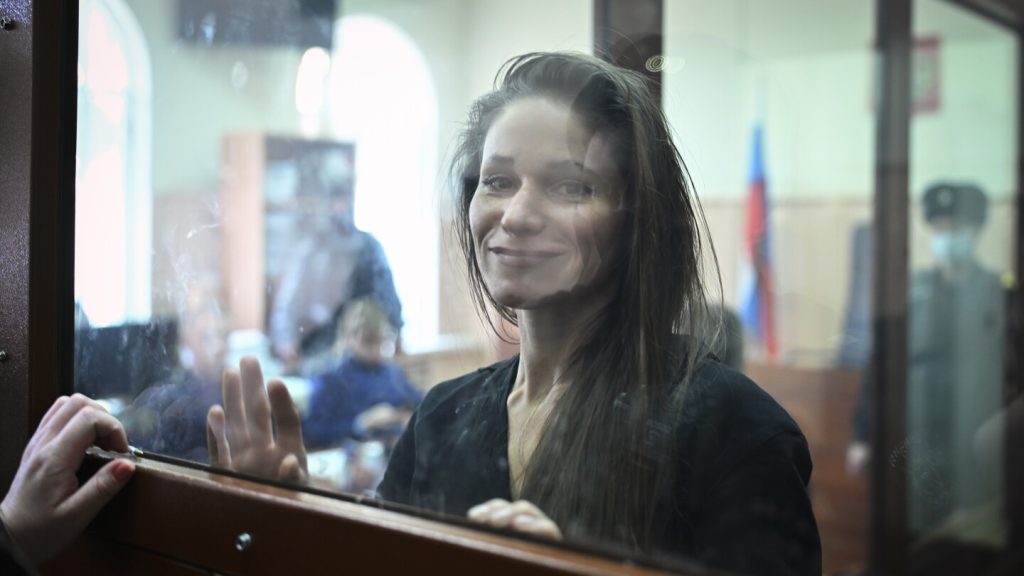In a recent development in Moscow, a Russian journalist named Antonina Favorskaya, also known as Antonina Kravtsova, has been ordered to remain in custody pending an investigation and trial on charges of extremism. Favorskaya, who covered the trials of late Russian opposition politician Alexei Navalny and other dissidents, was arrested earlier in March and is now facing charges related to her alleged involvement with an extremist group. The Moscow court has ordered her to remain in pre-trial detention until at least May 28, with the hearing being conducted behind closed doors at the request of the investigators, despite protests from Favorskaya and her lawyer.
Favorskaya’s arrest came after she was initially detained on March 17 for laying flowers on Navalny’s grave. While in custody, she spent 10 days in jail after being accused of disobedience toward the police. However, after this period of detention ended, authorities charged her again and ordered her to appear in court. Kira Yarmysh, Navalny’s spokeswoman, has stated that Favorskaya did not publish anything on the Foundation for Fighting Corruption’s platforms and suggested that Russian authorities have targeted her because of her work as a journalist. Yarmysh emphasized that the essence of the accusation against Favorskaya remains that she is being accused of engaging in journalistic activity.
Favorskaya’s coverage of various trials, including those of Navalny and other Kremlin critics, has placed her in the crosshairs of Russian authorities who have been cracking down on dissent in the country. She is one of several journalists who have been targeted as part of this clampdown, alongside opposition figures, activists, and members of the LGBTQ+ community. Her arrest by the court coincided with the first anniversary of the arrest of Evan Gershkovich, a reporter for The Wall Street Journal who is currently awaiting trial in Moscow’s notorious Lefortovo Prison on espionage charges. The U.S. government has declared Gershkovich wrongfully detained and accused Moscow of using him as a pawn for political purposes.
The situation surrounding Favorskaya’s detention has raised concerns about press freedom and the treatment of journalists in Russia. Media freedom organization Reporters Without Borders has highlighted the growing threats faced by journalists in the country, with several individuals being detained in recent months. The targeting of journalists and the crackdown on dissent have drawn criticism from international human rights groups and governments, who have called for the release of those wrongfully detained and an end to the harassment of journalists. The case of Favorskaya is just one example of the challenges faced by journalists in Russia as they seek to report on issues of public interest and hold those in power to account.
As the trial of Antonina Favorskaya continues, the international community will be closely watching to see how the Russian authorities handle the case and whether they uphold the rights of journalists to carry out their work without fear of persecution. The outcome of this trial could have far-reaching implications for press freedom in the country and may shed light on the broader crackdown on dissent that is taking place in Russia. It is essential for journalists like Favorskaya to be able to work freely and without fear of reprisal in order to fulfill their important role in society as watchdogs and disseminators of information.


